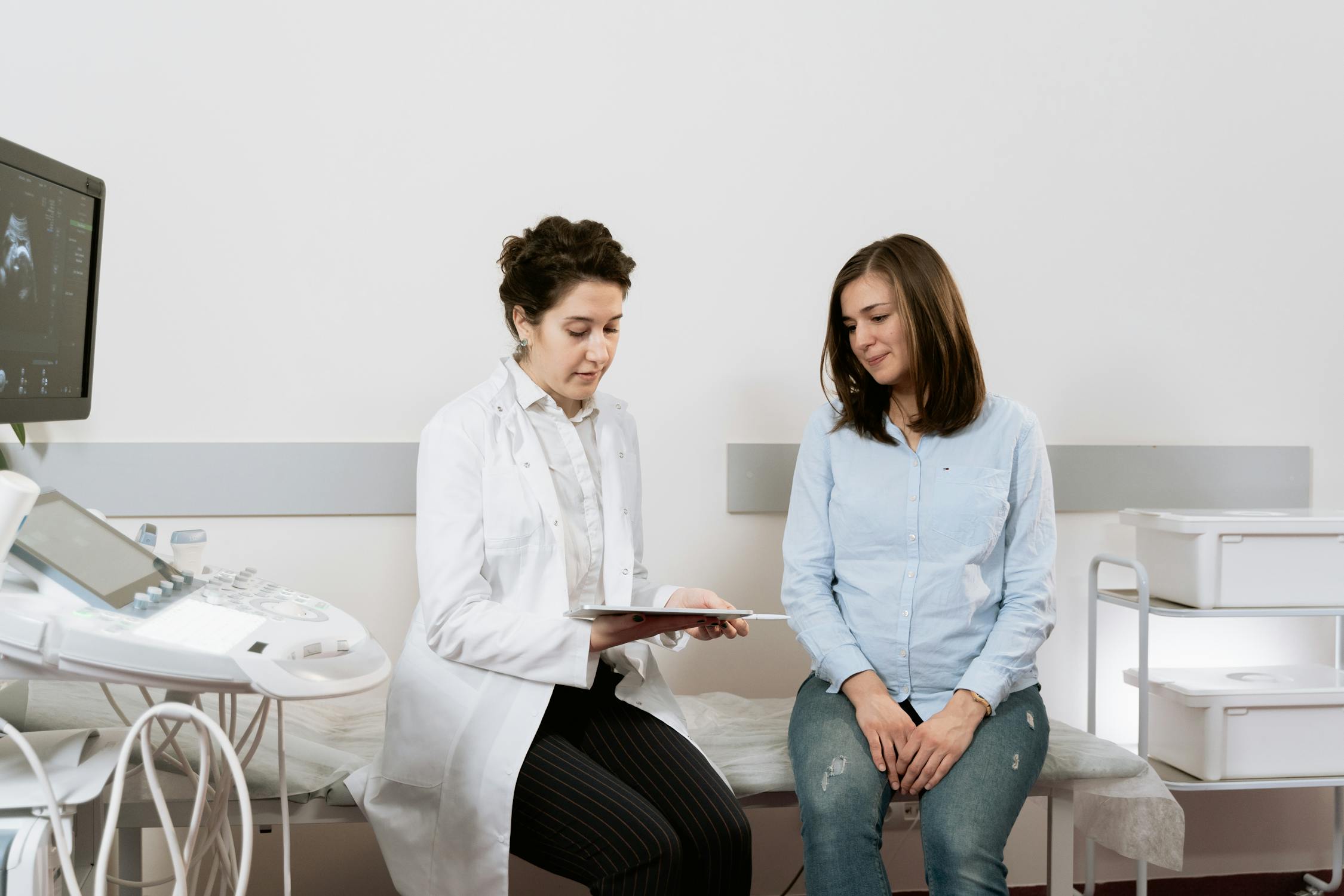Empowering Moms for a Happy and Healthy Pregnancy
Pregnancy is a beautiful journey, filled with joy and anticipation. As an expectant mom, you’re reaching the final stretch of your pregnancy, eagerly awaiting the arrival of your little one. However, along with this excitement comes the reality of third trimester pregnancy back pain. Don’t worry, mama! We’ve got you covered with practical tips and advice to help you find relief during this phase.
When Should I Worry About Back Pain in Pregnancy?
As an expecting mom, it’s essential to stay vigilant about any changes or discomfort you experience during your pregnancy. While some back pain is common and expected during the third trimester for pregnant women, it’s crucial to be aware of certain signs that may indicate a more serious issue. Reach out to your healthcare provider if you experience any of the following:
- Severe and persistent pelvic and back pain that doesn’t subside with rest.
- Sharp or shooting pain that radiates down your legs.
- Numbness or tingling in your legs or feet.
- Difficulty walking or standing.
- Fever or chills accompanying back pain.
Remember, it’s always better to err on the side of caution and consult with your healthcare provider if you have any concerns.

Why Do I Have Back Pain?
During the third trimester, your body undergoes significant changes to accommodate your growing baby. These changes can put added stress on your back, leading to discomfort and pain. Here are a few common reasons why you might be experiencing back pain:
Weight gain
As your baby grows, your body gains extra weight, causing additional strain and some deep pain on your back muscles and spine.
Postural changes
Your shifting center of gravity and a growing belly can lead to changes in your posture, placing extra pressure on your back.
Hormonal changes
The hormone relaxin is released during pregnancy to prepare your body for childbirth, but it can also loosen the ligaments in your back, leading to increased vulnerability to pain and discomfort.
Understanding these factors can help you navigate your pregnancy journey with greater ease and confidence.

10 Tips for Relief
1. Maintain good posture – Pay attention to your posture throughout the day, keeping your back straight and your shoulders relaxed.
2. Use supportive footwear – Opt for comfortable shoes with good arch support to alleviate strain on your back. For your spine, wear flat shoes as well.
3. Practice gentle exercises – Engage in low-impact exercises like prenatal yoga or swimming to strengthen your core and alleviate back pain.
4. Apply heat or cold packs – Use a heating pad or ice pack on your lower back for 15-20 minutes to relieve soreness.
5. Get regular massages – Treat yourself to a prenatal massage, focusing on areas of tension in your back to soothe sore muscles.
6. Use a pregnancy pillow – Invest in a supportive pregnancy pillow that can help relieve pressure and support your growing belly while you sleep.

7. Practice relaxation techniques – Incorporate breathing exercises, meditation, or prenatal yoga to help relax your body and mind.
8. Wear a maternity support belt – A maternity support belt can provide additional support to your lower back during daily activities.
9. Take breaks and rest – Listen to your body and take regular breaks throughout the day to rest and avoid overexertion.
10. Seek professional help – If your back pain persists or worsens, consult with a physical therapist who specializes in prenatal care for personalized treatment options.
When to Seek Medical Assistance: Prioritizing Your Health and Well-being
Putting Your Health First for a Happy and Thriving Family
As an empowered mom, you understand the importance of prioritizing your health and seeking medical assistance when needed. While it’s common to experience various discomforts such as pregnancy-related back pain during pregnancy, there are certain situations that require prompt attention from healthcare professionals. Remember, mama, your well-being is paramount in ensuring a happy and thriving family.

Here are some instances when it’s crucial to seek medical assistance:
Vaginal bleeding or fluid leakage
If you notice any vaginal bleeding, heavy spotting, or an unexpected discharge of fluid, it’s essential to reach out to your healthcare provider immediately. These symptoms could indicate potential complications, such as urinary tract infection, that need immediate evaluation.
Severe abdominal pain
While it’s normal to experience occasional discomfort and stretching sensations in your abdomen as your baby grows, severe pain should not be ignored. If you’re experiencing intense pain accompanied by fever, vomiting, or any other concerning symptoms, it’s time to seek medical assistance right away.
Reduced fetal movement
As your pregnancy progresses, you become more attuned to your baby’s movements. If you notice a sudden decrease in fetal movement or if your baby stops moving as frequently as usual, contact your healthcare provider for further evaluation. They can perform necessary tests to ensure your baby’s well-being.
Signs of preterm labor
If you experience any signs of preterm labor, such as regular contractions before 37 weeks, posterior pelvic pain and pressure, lumbar pain, or changes in vaginal discharge, don’t hesitate to contact your healthcare provider or seek medical assistance. Prompt intervention can prevent premature birth and ensure the safety of both you and your baby.

High blood pressure or severe headaches
Elevated blood pressure levels during pregnancy, accompanied by severe headaches, blurred vision, or swelling in the hands and face, could be indicators of preeclampsia, a serious condition that requires immediate medical attention. Contact your healthcare provider right away if you experience these symptoms.
To Wrap Up
Trust your instincts. If something doesn’t feel right or if you have any concerns about your health or the well-being of your baby, it’s always better to reach out to your healthcare provider. They are there to provide guidance, support, and the necessary medical care to ensure a happy and healthy journey for you and your family.
It’s not just about severe back pain too. If something does not feel right, whether you are in your first, second, or third trimester, visit your doctor to be safe. You don’t have to wait for more than two weeks. Your doctor can help find ways to relieve pain right away.
Remember, mama, you’re doing an incredible job nurturing your little one. Take care of yourself, listen to your body, and don’t hesitate to reach out for support when needed. Together, we can make your pregnancy journey a happy and healthy one!
Disclaimer: The information on this site is not intended or implied to be a substitute for professional medical advice, diagnosis or treatment. All content, including text, graphics, images and information, contained on or available through this website is for general information purposes only. Please see a medical professional if you need help with depression, illness, or have any concerns whatsoever. WE DO NOT OFFER MEDICAL ADVICE, COURSE OF TREATMENT, DIAGNOSIS OR ANY OTHER OPINION on your conditions or treatment options. SERVICES OR PRODUCTS THAT YOU OBTAIN THROUGH THIS WEBSITE are for information purposes only and not offered as medical or psychological advice, guidance or treatment. We also use some affiliate links in this blog to help support continuous production of wholesome parenting content such as this. 🙂 Feel free to use them to show your support.




